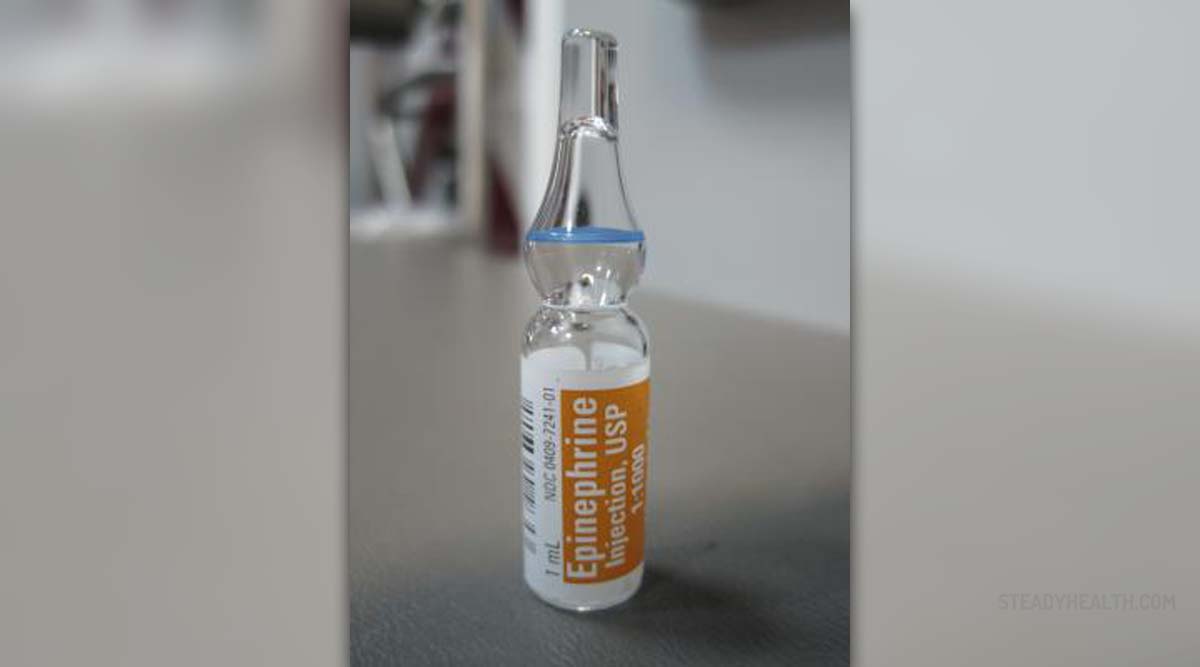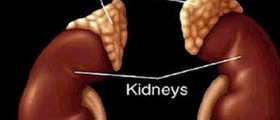
Epinephrine (adrenaline) is a hormone that also acts as neurotransmitter. It can effectively increase heart rate, is responsible for narrowing of blood vessels, dilatation of air passages and is of major importance for the fight-or-flight response of the sympathetic nervous system. Epinephrine belongs to catecholamines and is synthesized in the adrenal glands. Two major components of epinephrine are amino acids phenylalanine and tyrosine. Apart from being synthesized in the body by the adrenal glands today epinephrine can be obtained or synthesized artificially and it is used in many medical purposes.
What are the Effects of Epinephrine? After being synthesized in the adrenal glands epinephrine is released in the blood. It stimulates many tissues in the body and causes various effects. The neurotransmitter/ hormone can only induce specific effects once it is connected to special receptors on the target tissue.
Acting as hormone epinephrine have influence on almost all tissues. For example, it stimulates relaxation of smooth muscles in the airways and on the other side induces contraction of the smooth muscle that line the arterioles (small diameter blood vessels).
Epinephrine is capable of bonding and activating α and β receptors and consequently inducing many different effects. To be more precise, it is a nonselective agonist of all adrenergic receptors (α1, α2, β1, β2 and β3 receptors). By making a connection with these receptors epinephrine can trigger a variety of metabolic reactions. For example, stimulation of α adrenergic receptors leads to synthesis of insulin, the process glycogenolysis in both the liver and muscles and glycolysis in muscles. Stimulation of β receptors leads to glucagon secretion in the pancreas and increased production of ACTH by the pituitary gland. Stimulation of β receptors also boosts lipolysis by adipose tissue. All the previously mentioned effects eventually provide with optimal amount of glucose and fatty acids, essential substrates for energy production.
Effects of Ephedrine Shot
Artificially synthesized ephedrine is used in different medical conditions. For example, it is administered in people suffering from cardiac arrest and in some cases of cardiac abnormalities. After being injected constriction of blood vessels on the periphery of the body allows the heart to receive sufficient amount of blood. Furthermore, ephedrine is also highly effective in controlling excessive reaction of the immune system. This particular effect is used in people suffering from anaphylaxis where the body reacts uncontrollably and in harmful way to specific allergens. The drug can save lives of people suffering from anaphylactic shock. Still, it is essential to pay attention and determine the precise dose of the drug and never exceed it. This way negative effects of epinephrine can be successfully prevented.

















Your thoughts on this
Loading...